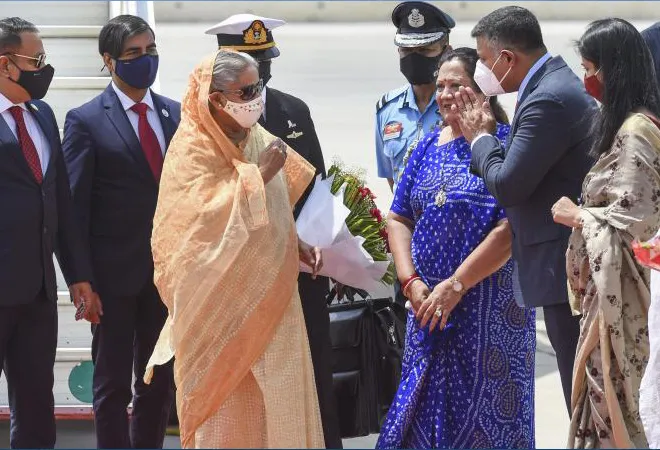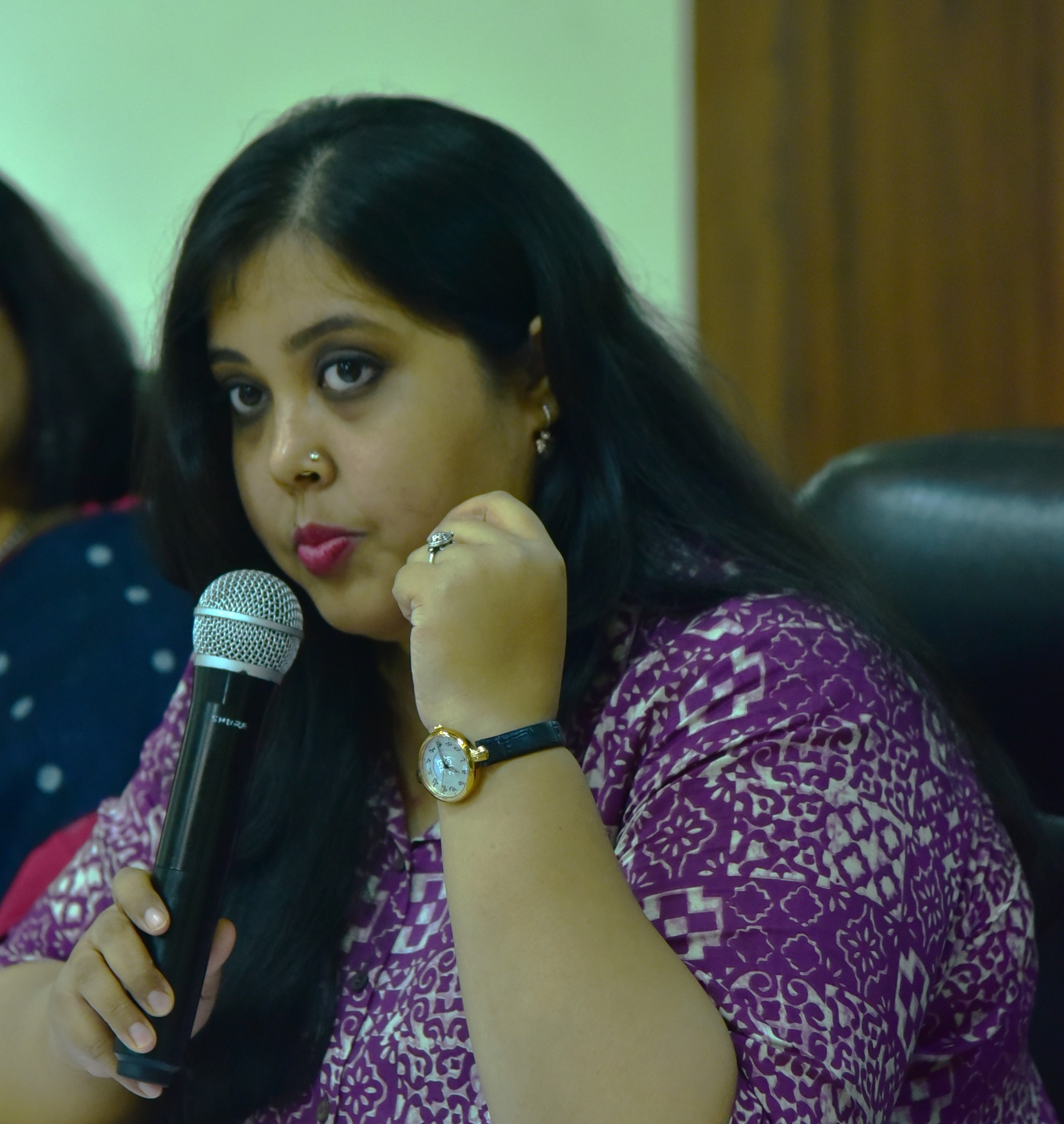-
CENTRES
Progammes & Centres
Location
It is hoped that Prime Minister Sheikh Hasina’s visit to India not only heightens bilateral relations between the two countries but also benefits the entire region

After almost three years, Bangladesh Prime Minister Sheikh Hasina is paying an official visit to India from September 5-8 at the invitation of Prime Minister Narendra Modi. This is a multi-faceted diplomatic visit with its agenda ning matters of connectivity, river water sharing, trade, and education.
Accordingly, she will be accompanied by a high-level delegation including a number of ministers, advisers, and secretaries along with senior officials of her government. She will be hosted by India’s new president, Droupadi Murmu along with the vice president, Jagdeep Dhankhar, and engage in delegation-level talks with Prime Minister Narendra Modi at the Hyderabad House.
The focus of this packed itinerary is to nurture the “shonali odhyay” or golden chapter in bilateral ties by exploring new ways to enhance cooperation in crucial areas. Ties between India and Bangladesh have witnessed considerable progress in recent years, especially in connectivity, with a number of initiatives being undertaken, such as inauguration of the Maitree Shetu over River Feni, Bangladesh’s offer to India to use its Chittagong Port, and the inauguration of the Mitali Express -- connecting New Jalpaiguri, India with Dhaka.
The recently inaugurated Padma rail-road bridge in Bangladesh also holds the potential to connect the two countries. Amongst the MoUs that are reportedly to be signed during this visit, connectivity is thus expected to be at the centre.
The agreement over the Kushiyara river is a testament to the decision in both countries to tackle the larger issues of water-sharing and water management, since this directly affects Bangladesh’s food security.
The central highlight of this visit however, is the signing of the agreement on sharing water of the Kushiyara river, precluded by a ministerial-level meeting of the Joint River Commission on August 25, which stressed on the urgency to resolve bilateral riparian issues.
Indeed, river water sharing has been a long-standing roadblock in India-Bangladesh relations with the Teesta River issue remaining unresolved. Nonetheless, the agreement over the Kushiyara river is a testament to the decision in both countries to tackle the larger issues of water-sharing and water management, since this directly affects Bangladesh’s food security.
Apart from efforts to increase cooperation, this visit is also designed to showcase the goodwill prevailing between the two countries by highlighting the reciprocity in relations.
Indeed, Prime Minister Hasina’s itinerary has distinct similarities with Prime Minister Modi’s state visit to Bangladesh in 2021 to join in the celebrations of the Golden Jubilee of Bangladesh’s independence and the Birth Centenary of the Father of the Nation, Bangabandhu Sheikh Mujibur Rahman as well as 50 years of diplomatic relations between the two countries.
Prime Minister Hasina’s visit comes less than a month after India celebrated Azadi ka Mahotsav on August 15, to commemorate its 75th Independence Day and she is scheduled to visit Rajghat to pay homage to Mahatma Gandhi.
Furthermore, Prime Minister Hasina will also be attending a business event organized by the Confederation of Indian Industries (CII), distributing the Mujib scholarships to the descendants of 200 Indian Armed Forces personnel who were martyred or endured critical injuries during the Liberation War of 1971 and paying her respects at Khwaja Moinuddin Chishti’s shrine at the Ajmer Sharif Dargah, Rajasthan, India.
The fate of India’s landlocked northeast is inextricably linked with an economically-dynamic Bangladesh as the latter provides a convenient access to the sea.
This bears remarkable resemblance to Prime Minister Modi’s 2021 visit, during which he had invited young entrepreneurs from Bangladesh to visit India, announced the establishment of Bangabandhu Chair at the University of Delhi along with 1,000 Shuborno Jayanti Scholarships for Bangladeshi students and visited the Jeshoreshwari Devi Temple in Jashore and Orakandi Temple in Gopalganj, lauding the prevailing tradition of religious harmony.
It is not without reason therefore that the two countries have hailed their bilateral relation as a “model” for the entire region.
As India seeks to “Act East” and put its “Neighbourhood First,” Bangladesh is of paramount importance to the country as India’s first geographical neighbour in the east and its closest partner in South Asia. The fate of India’s landlocked northeast is inextricably linked with an economically-dynamic Bangladesh as the latter provides a convenient access to the sea.
Indeed, this is true for other countries in the region as well, such as landlocked Nepal and Bhutan, which utilize Bangladesh’s seaports for their seaborne trade. Moreover, the country’s evolution into a middle-income country and its self-financing a project as large as the Padma Bridge, despite the pandemic, is truly a source of inspiration for the entire region.
It is hoped therefore that Prime Minister Hasina’s visit to India not only heightens bilateral relations between the two countries but also benefits the entire region, as has been deliberated by both heads of state.
This commentary originally appeared in Dhaka Tribune.
The views expressed above belong to the author(s). ORF research and analyses now available on Telegram! Click here to access our curated content — blogs, longforms and interviews.

Professor Harsh V. Pant is Vice President – Studies and Foreign Policy at Observer Research Foundation, New Delhi. He is a Professor of International Relations ...
Read More +
Sohini Bose is an Associate Fellow at Observer Research Foundation (ORF), Kolkata with the Strategic Studies Programme. Her area of research is India’s eastern maritime ...
Read More +